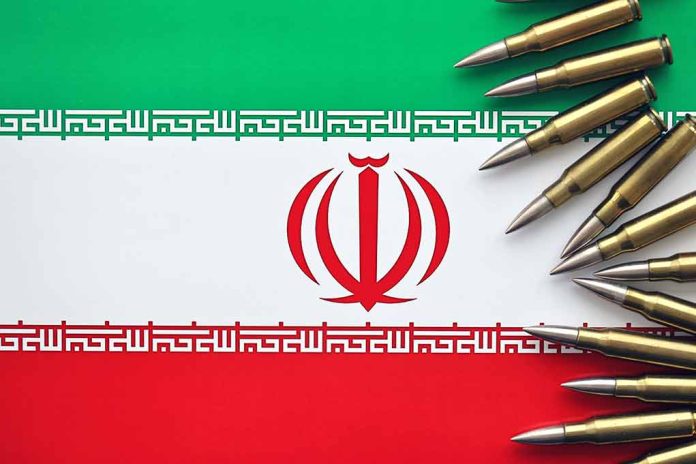
Iran executed German-Iranian dual national Jamshid Sharmahd, igniting international outrage and diplomatic tensions.
At a Glance
- Jamshid Sharmahd, a 69-year-old German-Iranian political scientist, was executed by Iran.
- Sharmahd was seized by Iranian authorities in 2020 while traveling through the UAE.
- He was sentenced to death for “corruption on Earth” and alleged involvement in a 2008 mosque bombing.
- Germany and other Western nations have strongly condemned the execution.
- The case highlights ongoing tensions between Iran and Western countries over human rights issues.
Execution Sparks International Condemnation
The Iranian regime’s execution of Jamshid Sharmahd, a 69-year-old German-Iranian political scientist, has ignited a firestorm of international criticism. Sharmahd, who had lived in the United States for years, was seized by Iranian authorities in 2020 while traveling through the United Arab Emirates. The execution, carried out on October 28, 2024, has drawn sharp rebukes from Western nations and human rights organizations.
Germany’s response to the execution was particularly forceful. Foreign Minister Annalena Baerbock condemned the act, stating that it “shows once again what kind of inhumane regime rules in Tehran: a regime that uses death against its youth, its own population and foreign nationals.” The German government has warned of “serious consequences” for Iran’s actions, highlighting the growing tensions between the two nations.
Jamshid Sharmahd, Iranian-German prisoner who lived in California, executed in Iran over disputed terror charges https://t.co/Up0NCNsLgP
— CBS Evening News (@CBSEveningNews) October 29, 2024
Controversial Trial and Accusations
Sharmahd’s case has been mired in controversy from the start. Iran accused him of involvement in a 2008 mosque bombing in Shiraz and of leading the Tondar group, which Iran classifies as a terrorist organization. He was sentenced to death in February 2023 for “corruption on Earth,” a charge often leveled against political dissidents. The sentence was later confirmed by Iran’s supreme court.
“Jamshid Sharmahd did not even receive the opportunity to defend himself against the charges at the trial,” German Chancellor Olaf Scholz stated, highlighting the widespread concerns about the fairness of the legal proceedings.
Human rights organizations, including Amnesty International, have vehemently criticized the trial, citing a lack of evidence and allegations of forced confessions and torture. The U.S. State Department labeled the legal process a “farcical trial,” underscoring the international skepticism surrounding Iran’s judicial system.
Implications for International Relations
The execution of Sharmahd is likely to have far-reaching consequences for Iran’s relations with Western nations. Germany has already expelled two Iranian diplomats in response to Sharmahd’s sentencing, and calls for a change in EU policy towards Tehran have intensified following the execution.
“The Islamic Republic understands no language of peace or diplomacy,” stated Masih Alinejad, an Iranian-American activist, highlighting the growing frustration with Iran’s actions on the international stage.
This case is part of a broader pattern of Iran targeting dissidents abroad, including other recent executions of dual nationals. The execution of Sharmahd, a Western citizen and resident, has drawn particular attention to Iran’s human rights record and its treatment of dual citizens.
As tensions continue to escalate, the international community faces the challenge of formulating an effective response to Iran’s actions while balancing diplomatic concerns and human rights advocacy. The execution of Jamshid Sharmahd serves as a stark reminder of the ongoing human rights issues in Iran and the complex geopolitical landscape surrounding the country’s relations with the West.
Sources
- Iranian-German prisoner Jamshid Sharmahd, who lived in US, executed in Iran over terror conviction
- Iran executes German-Iranian dissident
- Iran executes German-Iranian dissident after years in captivity
- Iran Executes California-Based Journalist












